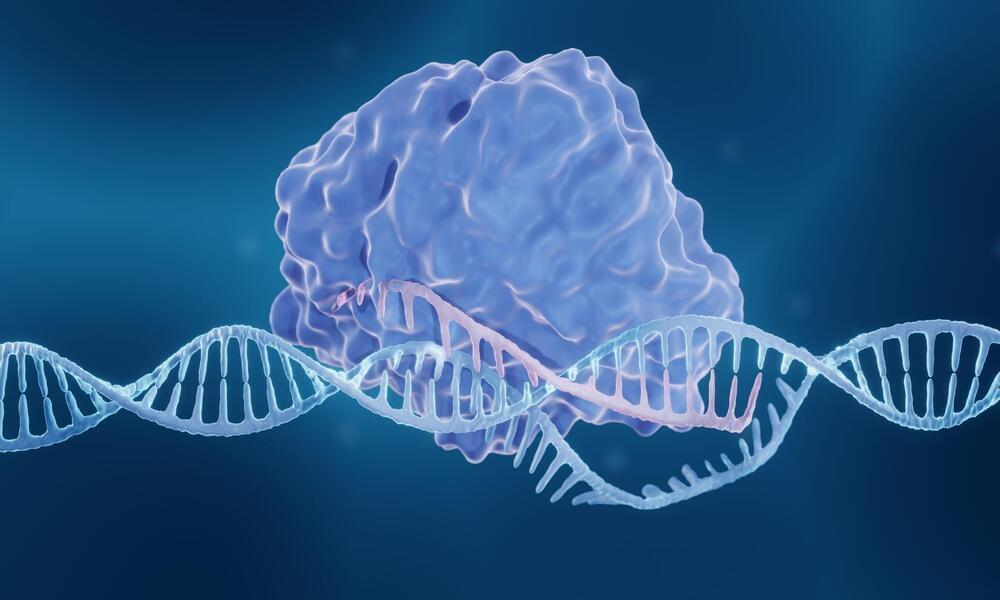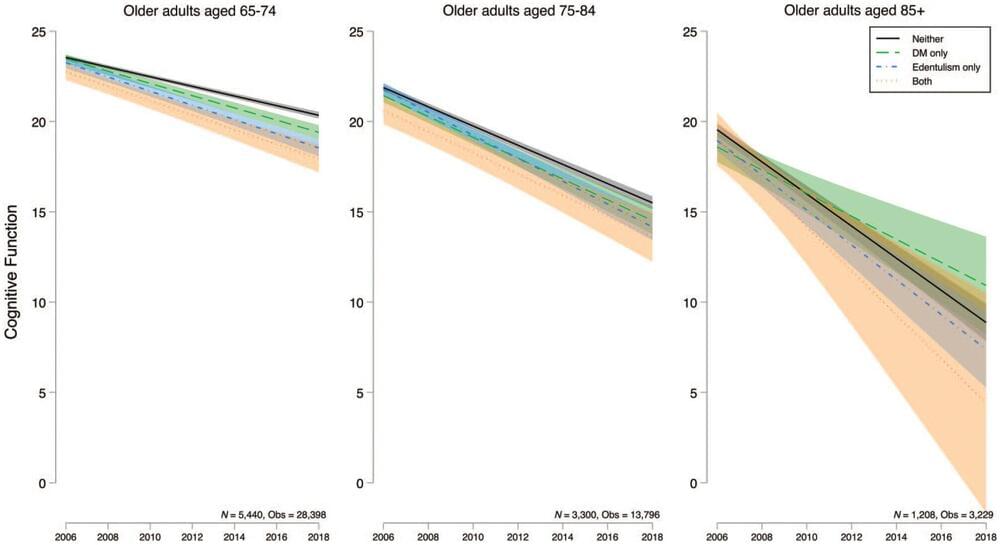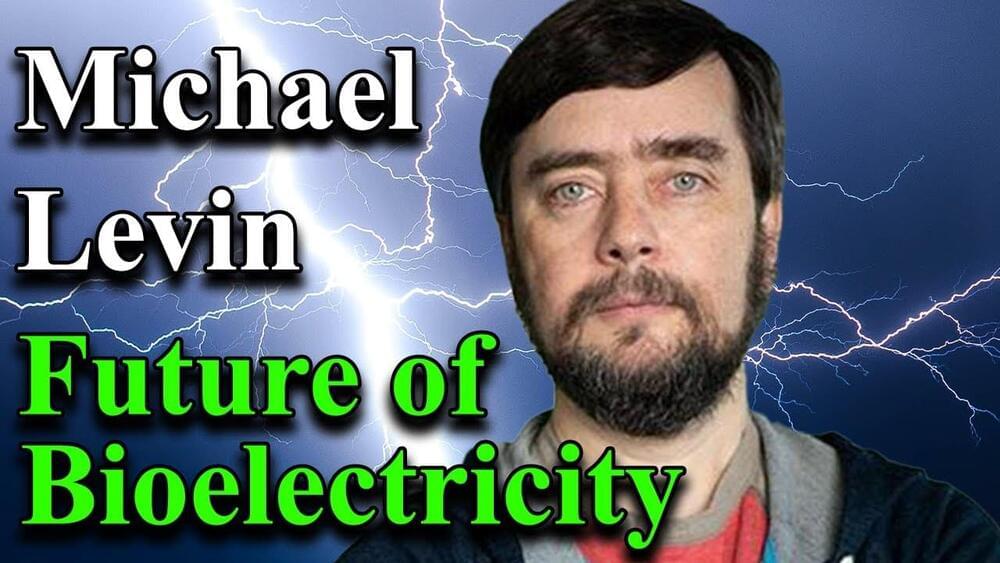
Changes in the brain caused by Alzheimer’s disease are associated with shortening of the telomeres—the protective caps on the ends of chromosomes that shorten as cells age—according to a new study led by Anya Topiwala of Oxford Population Health, part of the University of Oxford, UK, published March 22 in the open-access journal PLOS ONE.
Telomeres on chromosomes protect DNA from degrading, but every time a cell divides, the telomeres lose some of their length. Short telomeres are a sign of stress and cellular aging, and are also associated with a higher risk of neurological and psychiatric disorders. Currently, little is known about the links between telomere length and changes that occur in the brains of people with neurological conditions. Understanding those relationships could offer insights into the biological mechanisms that cause neurodegenerative disorders.
In the new study, researchers compared telomere length in white blood cells to results from brain MRIs and electronic health records from more than 31,000 participants in the UK Biobank, a large-scale biomedical database and research resource containing anonymized genetic, lifestyle and health information from half a million UK participants.

















